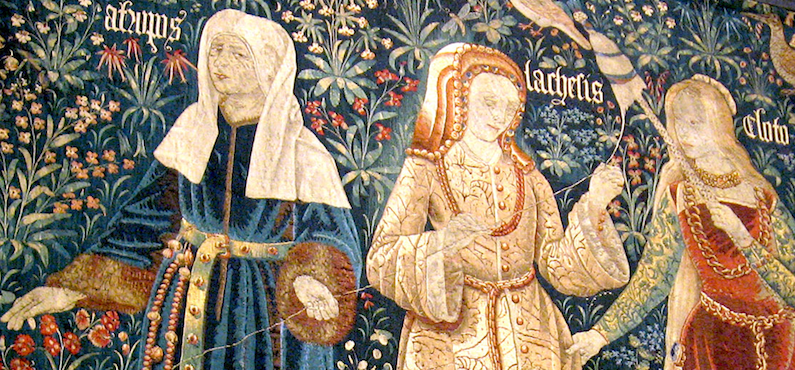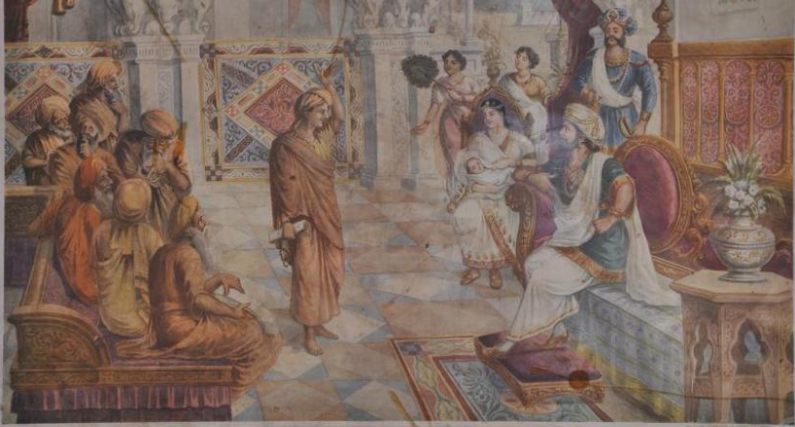
by Zabaan | Jun 11, 2015 | Ancient Greek, Classical languages, Greek Mythology, Literature, Norse Mythology, Old English, Old Norse
According to Greek mythology the fate of each and every individual is determined by the cool and steady hand of three sisters, collectively known as the Μοῖραι (moirai). Their name is derived from the verb μείρομαι (mēromai), to receive as one’s lot. Each on her...

by Zabaan | Jun 9, 2015 | Case Systems, Classical languages, Linguistics, Old English, Old Norse
Ink, as a tool for writing, has had a profound and ever deepening influence on our perception of the nature of language. It has enabled us to make stills of fractional moments in its evolution and given an artificial solidity to something that has only a very...

by Zabaan | Jun 4, 2015 | Ancient Greek, Classical languages, Etymology, Literature, Old English, Sanskrit
The common word for king is राजा (rājā) in Sanskrit, βασιλευς (basileus) in ancient Greek and cyning in Old English. But in poetic diction these languages also all share a number of very similar circumlocutions, i.e. descriptive terms or so called speaking...

by Zabaan | May 31, 2015 | Classical languages, Norse Mythology, Old English, Old Norse
In Norse myth valhöll (the Old Norse term for valhalla) is the hall where warriors feast at Odin’s table after dying in battle. The word is a compound consisting of val (wæl in Old English), the slain and höll (heall in Old English),...
by Zabaan | May 28, 2015 | Classical languages, Old English
Both words in the phrase kith and kin are of Old English origin. Kith is from cȳð (ð is pronounced as a th in modern English), which means known and also crops up in an entirely different spelling the the word uncouth: unknown, unfamiliar, wild,...





